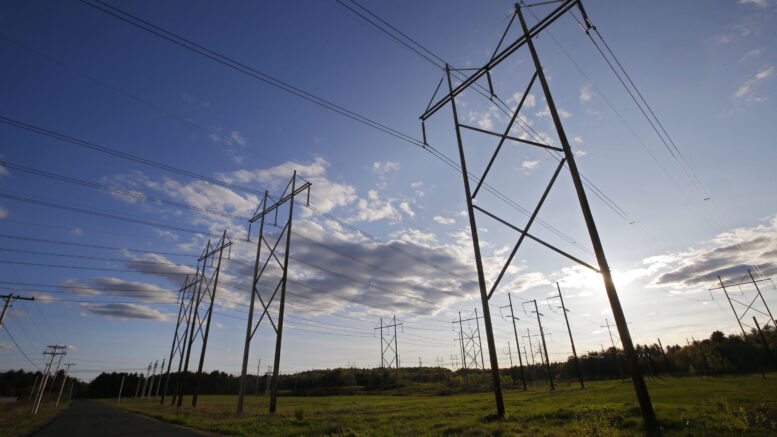Foreign companies would be prohibited from spending money to sway Maine voters on public policy issues under a proposal sent to Gov. Janet Mills for consideration.
On Thursday, the state Senate approved legislation that would prohibit companies that are 10% or more foreign owned from spending money on political advertising for ballot questions. The measure now heads to Gov. Janet Mills for consideration.
Backers of the proposal say the state needs to close a loophole that allows foreign corporations to pour money into campaigns aimed at swaying Maine voters on major public policy decisions.
The move is aimed at Hydro-Quebec’s efforts to promote construction of a 145-mile hydropower transmission line through the state, which the Canadian-based company is developing in partnership with Central Maine Power, Maine’s largest utility.
“Regardless of how you feel about the CMP Corridor, Hydro-Quebec has exposed a dangerous loophole, and Maine legislators rightfully voted to close it,” said Tom Saviello, of the No CMP Corridor PAC, which opposes the project. “Hopefully Gov. Mills will act swiftly to sign this bill into law. It’s simply the right thing to do.”
But critics of a ban say it would cut off a vital source of funding to promote the project, which calls for providing up to 1,200 megawatts of Canadian hydropower to the New England region.
The companies say the project will create jobs, help green the regional power grid and reduce greenhouse gas emissions that scientists say are contributing to a warming planet.
Opponents say it will carve through scenic swaths of forest in the North Maine Woods, damaging the environment and leading to a loss of jobs and recreational tourism.
Both sides have waged a costly and bitter public relations war for several years over the details of the project, and whether it will negatively impact the state and its ratepayers.
Meanwhile, opponents are inching towards the November ballot with a referendum that would stop the project. Political observers expect a crush of spending on advertising from both sides.
Secretary of State Shenna Bellows certified more than 80,000 signatures turned in by opponents of the project, clearing a major hurdle to putting the issue before voters.
But a lawsuit filed by a state lawmaker last week calls for spliting the proposed referendum into three separate questions for the November ballot.
Supporters of the project say splitting the referendums into two separate questions will allow voters to “better understand” the issue and make decisions about specific aspects of the hydropower project. But opponents of the hydropower project say the litigation is a last-ditch attempt to defeat the referendum by confusing voters.
Sandi Howard, who heads the No CMP Corridor PAC, said the company has spent tens of millions of dollars to promote a project that won’t benefit the state.
“Current law has allowed a foreign government a bullhorn to drown out the concerns of Mainers to promote the interests of taxpayers in another country,” she said in a statement. “Under this bill, that abuse will end.”
Backers of the project claim that opposition to the hydropower corridor is being funded mostly by the fossil fuel industry, with the intent of killing green energy projects.
This article was originally posted on Maine moves to ban foreign money in ballot questions

Be the first to comment on "Maine moves to ban foreign money in ballot questions"